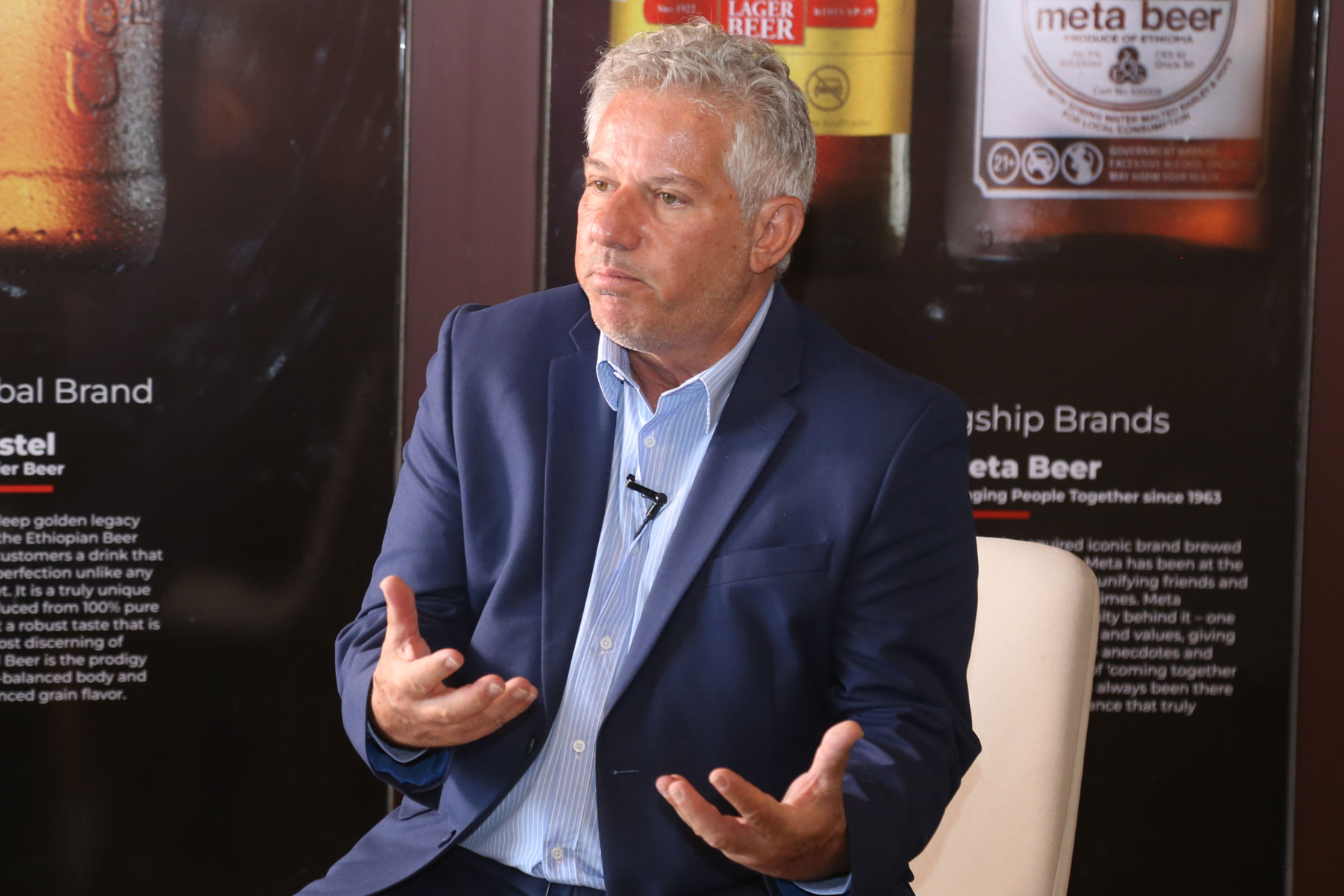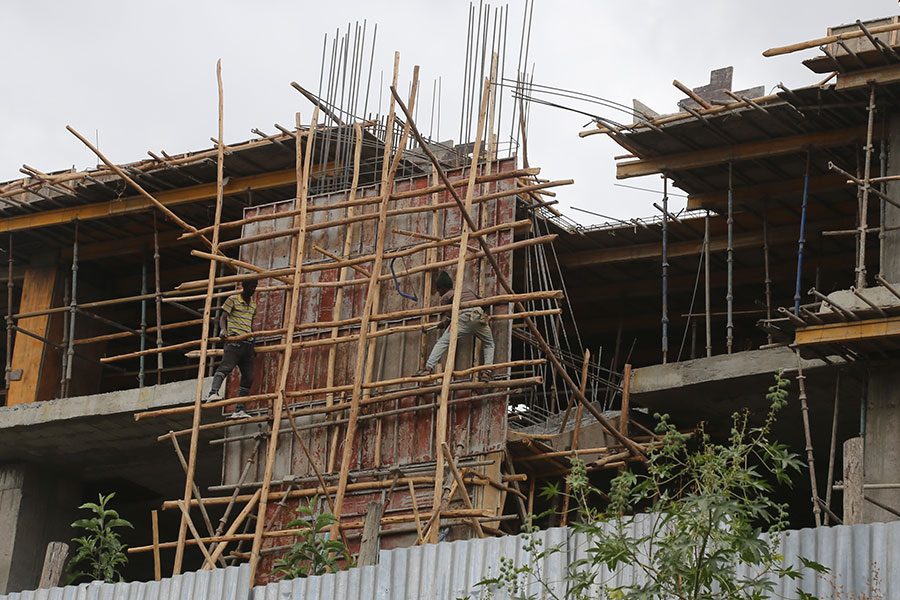
Editorial | Oct 28,2023
BGI Ethiopia, one of the largest brewing companies, is in the throes of a major transition that has spurred unrest among its workforce. The brewing behemoth, with around three decades of operation and owning six of the largest brewing plants, including the iconic St. George Beer brand that has been a staple for over a century, is relocating its operations from its 30,000sqm facility in Mexico Square to Meta Abo, in the outskirts of Addis Abeba.
Two weeks ago, a management announcement exacerbated the anxiety of workers who now find themselves in a precarious position. They face the dilemma of either adapting to a reform that seems uncertain at an unfamiliar location or risking termination with what they perceive as inadequate severance packages. The announcement was the tipping point for a group of workers who have been with BGI for over two decades, leading to a strike in protest against the company's policies.
However, the move to relocate is part of an ambitious expansion strategy initiated by CEO Herve Milhade, who took the helm a year ago.
The company's decision to move is driven by several factors, including a need to meet increasing water demand, improve logistics, and comply with revised Addis Ababa's master plan that prohibits large factories in urban centres. However, the strategic move has not been smooth sailing. The relocation has brought to the fore tensions between a supply chain accustomed to a hands-off approach and a corporate orientation towards more hands-on management.
The workers' discontent lies in their demand for employment guarantees and better benefits packages. An employee with BGI for over 20 years expressed indignation at being asked to disassemble machinery and relocate to a new site in Raya, Tigray Regional State, "without sufficient employment guarantees."
"We're asking only what is ours," he told Fortune.
The workers proposed up to 100 months of employment guarantee, but the management's counteroffer was only a fifth of this period. The disparity led the workers to halt operations, striking until their demands were met.
"They can't take us anywhere unless our demands are answered," he told Fortune with a tone of resolve.
In response to the strike, an emergency meeting was convened on Thursday, November 30, 2023, at BGI headquarters near Mexico Square. The company's executives' hope to pacify the distress fermenting for the past two months was dashed. The meeting, which included representatives from the St. George Trade Union, the Confederation of Trade Unions (CETU), and the Federation of Food, Drinks & Tobacco, was a heated debacle.
Andualem Woldemariam, the St. George Trade Union chairperson, voiced the need for worker inclusion in management decisions impacting employees. He raised a pervasive anxiety among workers about strategic reforms and potential layoffs.
"We're being left out of decisions," said the labour union leader. "We should know how many workers are about to be laid off."
Executives blamed a lack of understanding of the roles of management and trade unions as the main reason for the ongoing confusion.
Jalalie Djeragna, BGI's corporate service and public relations director, spoke at the meeting, expressing her disappointment at the souring relationship between management and workers. She believed that some decisions should remain within management's purview and that disagreements over benefits or employment guarantees should be addressed through negotiations. The Communications Director insisted that the benefit packages accommodate workers' wages at all payment scales.
"What more do you want?" she bemused.
Jalalie warned that damaging the brand could be detrimental.
The company's competitive position has been challenged recently, losing market share to stiff competition. BGI, the second-largest producer in 2021, has been a significant player since the late 1990s, expanding its portfolio through acquisitions of St. George and new projects in Kombolcha. It expanded its portfolio with the launch of Hawassa Brewery in 2011 and made two more investments since then, acquiring Raya Brewery for 88 million dollars in 2017 and Zebidar Brewery in 2019. The latest expansion project at the previous Meta Abo Brewery site at a cost of more than half a billion Birr is aimed at increasing production capacity.
The company's current production capacity is over 4.3 million hectolitres a year, trailing behind Heineken, which boasts a capacity of over 5.6 million hectolitres annually.
Yonas Gemechu, the Human Resource director, also expressed dismay with the ongoing protests and strikes.
"It should not have reached this stage," he stated.
Yonas insisted that there had been clear communications between management and workers and dismissed suggestions that management was unapproachable. He recalled collaboration with workers to identify improvement areas, including laying off unreliable staff members.
"We did not leave you out of anything," he said at the meeting.
According to Bekele Semu, site manager, the development of expansion projects, set to unfold over the next three years, is driven by factors like logistics hurdles, the capital's master plan, and water shortages. He said workers at the bottling plant would be relocated to Raya Brewery to train new employees and possibly be employed at other plants nationwide.
Jalalie offered severance packages and recognition certificates to those unwilling to extend their employment after serving in Raya Brewery.
Despite ongoing deliberations and negotiations, BGI's management has remained tight-lipped, declining a series of questions from Fortune.
According to legal expert Mehari Reda (PhD), BGI's benefit offers exceed legal requirements. He cautioned that the workers' strike could be counterproductive to the labour force, as the management is acting within its rights. While trade unions have a right to consultation, company restructuring does not necessarily require communication with workers, Mehari said.
"Management is expected to make beneficial decisions," he told Fortune. "The duty to consult is not a duty to agree."
The restructuring at BGI is also causing apprehension among its six distributors in Addis Abeba.
The plans to triple the number of distributors by dividing routes have worried existing distributors like Benvino Trading Plc, fearing loss of the business. The company averages around 1.5 billion Br in revenues annually and employs over 250 people.
Girum Alemayehu, a significant shareholder and general manager, claimed to have invested millions of Birr and alleged a breach of a two-year-old agreement granting them the right to distribution routes.
"They can not do this to us," he bemoaned.
PUBLISHED ON
Dec 02,2023 [ VOL
24 , NO
1231]

Editorial | Oct 28,2023

Exclusive Interviews | May 11,2024

Commentaries | Feb 10,2024

Agenda | Oct 13,2024

Fortune News | Oct 02,2021

Viewpoints | May 24,2025

View From Arada | Apr 13,2019

My Opinion | Sep 13,2025

View From Arada | Oct 31,2020

Fortune News | Apr 29,2023

Dec 22 , 2024 . By TIZITA SHEWAFERAW
Charged with transforming colossal state-owned enterprises into modern and competitiv...

Aug 18 , 2024 . By AKSAH ITALO
Although predictable Yonas Zerihun's job in the ride-hailing service is not immune to...

Jul 28 , 2024 . By TIZITA SHEWAFERAW
Unhabitual, perhaps too many, Samuel Gebreyohannes, 38, used to occasionally enjoy a couple of beers at breakfast. However, he recently swit...

Jul 13 , 2024 . By AKSAH ITALO
Investors who rely on tractors, trucks, and field vehicles for commuting, transporting commodities, and f...

Nov 1 , 2025
The National Bank of Ethiopia (NBE) issued a statement two weeks ago that appeared to...

Oct 25 , 2025
The regulatory machinery is on overdrive. In only two years, no fewer than 35 new pro...

Oct 18 , 2025
The political establishment, notably the ruling party and its top brass, has become p...

Oct 11 , 2025
Ladislas Farago, a roving Associated Press (AP) correspondent, arrived in Ethiopia in...